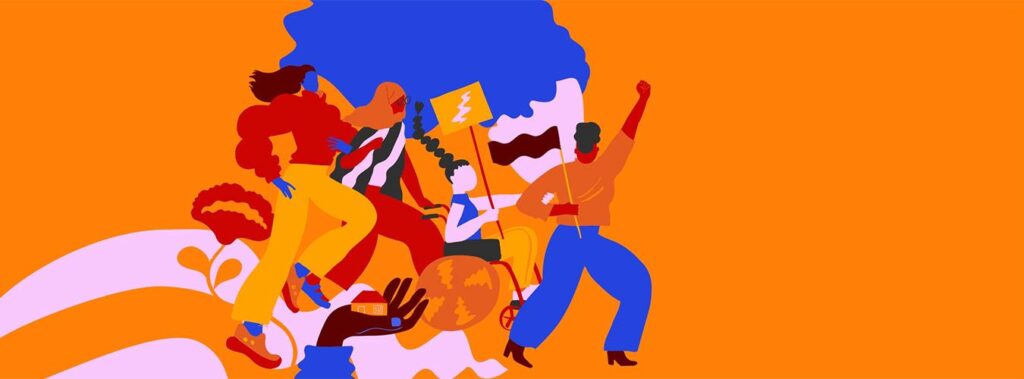Ending VAWG And Not A Day Too Soon
Nov 25, 2022 | Shalini Rai
Women are often unable to identify violence meted out to them because of the normalization of discrimination and violence towards them. For this reason, they rarely seek support and continue to suffer in silence, having accepted their situation as a fait accompli. Additionally, even if they do want to seek support, they remain unaware of redressal mechanisms and lack awareness of legal options (Representational Image)
Today, November 25, is marked as the International Day for Elimination of Violence Against Women by the United Nations. Violence against women and girls (VAWG) is among the most widespread human rights violations in the world but remains largely unreported due to the silence, stigma and shame surrounding it. It is also one of the most persistent and devastating transgressions against women and is carried out with impunity.
The recent Shraddha Walkar case has brought home the gross brutality with which violence against women is committed, with the accused overwhelmingly assured to get away with murder, in dozens of case, literally.
According to the Declaration on the Elimination of Violence Against Women issued by the UN General Assembly in 1993, violence against women is defined as “any act of gender-based violence that results in, or is likely to result in, physical, sexual or psychological harm or suffering to women.” It includes threats of such acts, coercion or arbitrary deprivation of liberty, whether this occurs in the public domain or in private life.
Violence against women manifests itself in several forms, prominent among them being physical, sexual and psychological. It includes:
- intimate partner violence (battering, psychological abuse, marital rape, femicide)
- sexual violence and harassment (rape, forced sexual acts, unwanted sexual advances, child sexual abuse, forced marriage, street harassment, stalking, cyber- harassment)
- human trafficking (slavery, sexual exploitation)
- female genital mutilation and
- child marriage
There are several adverse consequences of VAWG, including but not limited to psychological, sexual and reproductive health impacts, that affect women at all stages of their lives. According to the UN, “…early-set educational disadvantages not only represent the primary obstacle to universal schooling and the right to education for girls; down the line they are also to blame for restricting access to higher education and even translate into limited opportunities for women in the labour market.”
The UN further states, “While gender-based violence can happen to anyone, anywhere, some women and girls are particularly vulnerable — for instance, young girls and older women, women who identify as lesbian, bisexual, transgender or intersex, migrants and refugees, indigenous women and ethnic minorities, or women and girls living with HIV and disabilities, and those living through humanitarian crises.”
VAWG continues to have the dubious distinction of being an obstacle to achieving equality, peace and development, apart from hampering the fulfillment of women and girls’ human rights. In totality, the promise of the Sustainable Development Goals (SDGs) — to leave no one behind — cannot be fulfilled without putting an end to VAWG.
The government’s decision to launch a month-long nationwide campaign against gender-based violence, today, comes not a day too soon and in fact, could have been launched several months ago. ‘Nai Chetna’, envisioned as a ‘Jan Andolan’, will be launched by the Union Minister for Rural Development to mark the International Day for Elimination of VAWG.
Meanwhile, in a large majority of cases, women are often unable to identify violence meted out to them because of the normalization of discrimination and violence towards them. For this reason, they rarely seek support and continue to suffer in silence, having accepted their situation as a fait accompli. Additionally, even if they do want to seek support, they remain unaware of redressal mechanisms and lack awareness of legal options.
In the Shraddha Walkar case, although she tried to seek help and even filed a police complaint against her live-in partner/abuser Aaftab Poonawala, it did not improve her situation as she was held back by concerns which we may never really find out. It can, however, be surmised that her hope to see her perpetrator held accountable and punished for his acts was subsumed by ‘societal’ considerations and the psychological trickery Poonawala may have employed to make her withdraw her complaint.
It is this treacherous domain that victims of violence have to continuously traverse and which is where a vast majority of them decide to give up pursuance of punishment for their abusers and either go back to live with them or reconcile to an unjust (read: perpetrator going unpunished) end to the abusive relationship.
It is this perfidy that women’s rights workers, journalists, civil society organisations and authorities dealing with VAWG have to guard against and overcome to be of permanent, substantive assistance to female victims of violence.
Acknowledgement, albeit belated, of the gravity of the violation of women’s rights due to various forms of violence and setting aside a day to bring home the message that there are support systems to help women cope with and step out of such situations, is a step in the right direction.
However, much more needs to be done and includes gender sensitisation; ingrained, early respect for women and girls among male children; removing the stigma around domestic violence and gender-based violence; and providing a robust support system and redressal mechanism to victims of VAWG.
Each step, seen individually, may seem small. Taken together, it will go a long way in making VAWG a rare occurrence and not as commonplace as it is today, unfortunately.
